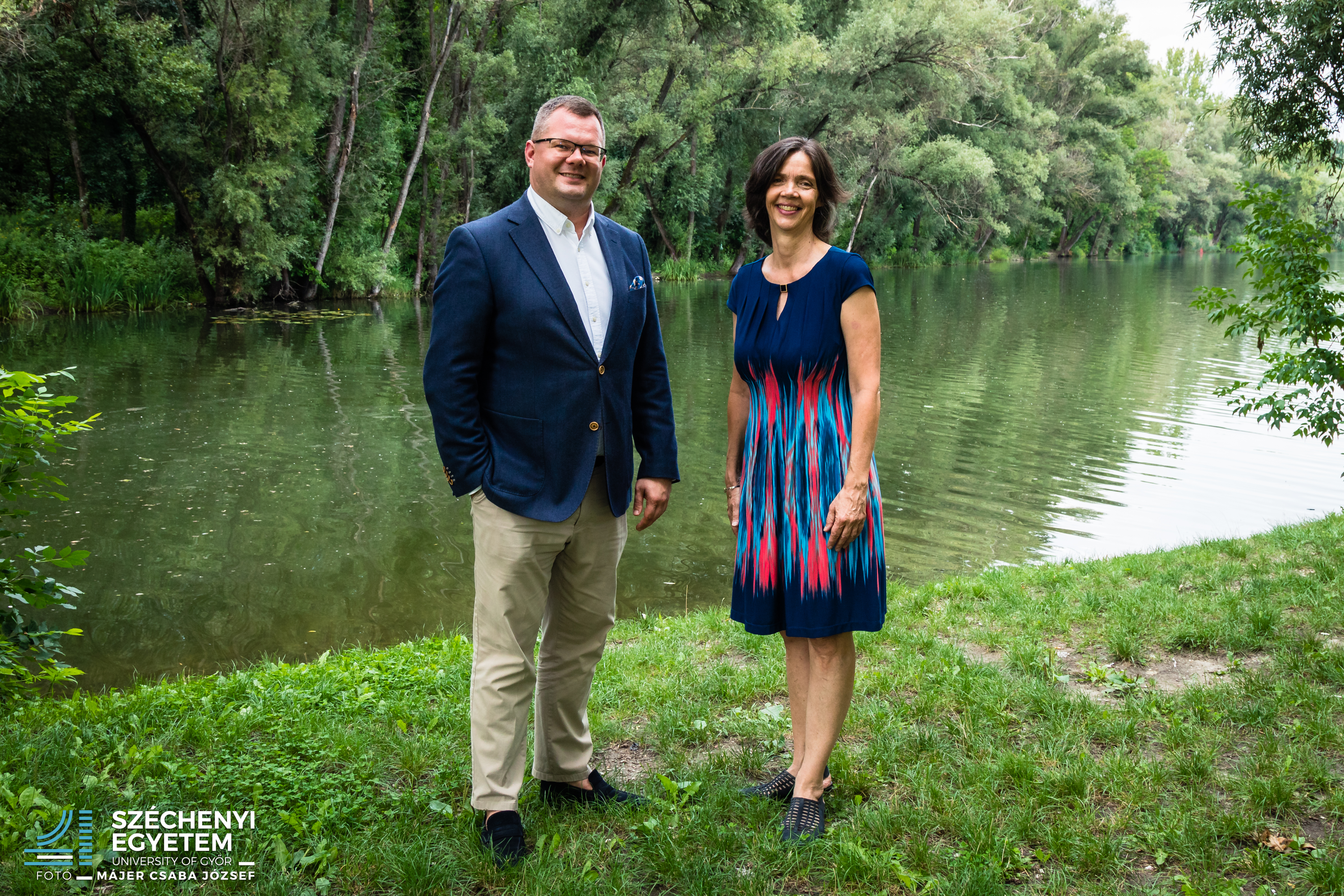Széchenyi István University works on development of Szigetköz and Csallóköz
With the decisive participation of Széchenyi István University, and involving more than a hundred researchers, The Insula Magna Programme, laying the foundations for the future of Szigetköz and Csallóköz, is now underway with wide-ranging collaboration. The project proposals identified in the process, which promote the sustainable development of Szigetköz, can be implemented in the next EU cycle.
“Szigetköz and Csallóköz are uniquely beautiful landscapes of Hungary and Slovakia, but in recent decades they have been omitted from major developments. Having as its aim the establishment and preparation of future Szigetköz investments, the Szigetköz Programme (rechristened Insula Magna, its Latin name) a complex water management and sustainable development programme, supported by the government with around one billion forints EU and Hungarian funding, is thus of historical significance. These investments can then be implemented in the 2021–2027 EU budget cycle,” said Dr Dávid Fekete, associate professor at Széchenyi István University and operational manager of the programme. He added that in the course of the work they co-operate with several organizations, with such key consortium partners as the National Directorate General for Water Management and the North Transdanubia Water Directorate, as well as with the Szigetköz Nature Park and with Csallóköz institutions.
"We are developing a long-term, multifaceted concept that will enable the Szigetköz-Csallóköz region to become a cross-border, sustainable and exemplary development area," said Dr Katalin Bene, associate professor at Széchenyi University and scientific leader of the programme, in summarising the project’s most important goal. To this end, 18 work packages have been identified, 13 of which are university-led, involving more than a hundred researchers. These include the examination of the possible location and functions of a Szigetköz visitor centre, the development of an environmental monitoring system and an open laboratory system, a water management and hydrodynamic decision making model, and the elaboration of a regional tourism development concept. Other work packages address the built environment, the establishment of an agricultural information system, transport infrastructure, public transport and public awareness of the project. From all project elements, indicators will be identified to support the work of decision-makers in the future, as well as preparing a medium-term strategy and establishing a sustainability competence centre.

Dr Dávid Fekete and Dr Katalin Bene at the picturesque Mosoni-Danube backwater near Széchenyi István University. (Photo: József Csaba Májer)
Dr Bene emphasized that all this supports the local adaptation to the UN Sustainable Development Goals, the long-term, complex development of Szigetköz, the adaptation to climate change and the measures necessary for the protection of natural resources. Most of the necessary preparatory activities and research will be completed this year, with detailed proposals to be formulated in the first half of 2022. The work is assisted by a professional advisory board in which the important stakeholders of national and local scientific, economic and political life participate.
An essential element of the programme is, of course, the restoration and rehabilitation of the Old Danube and its associated tributary system, led by the National Directorate General for Water Management. To this end, conceptual technical design documentation is in preparation with the necessary impact assessments.
Dr Fekete and Dr Bene emphasized that the decisive participation of Széchenyi István University in the project, which is implemented with wide-ranging collaboration, is no coincidence. On the one hand, via the Győr and Mosonmagyaróvár campuses, the institution is an integral part of Szigetköz, and on the other hand, it possesses expertise and a research team specialized in topics related to complex regional development areas, thanks to which it is able to perform the task at a high level. Moreover, the strategic goal of the University, in addition to international-quality education and research, is to play an important role in the life of the region and the country, and to contribute to further strengthening of its competitiveness.











